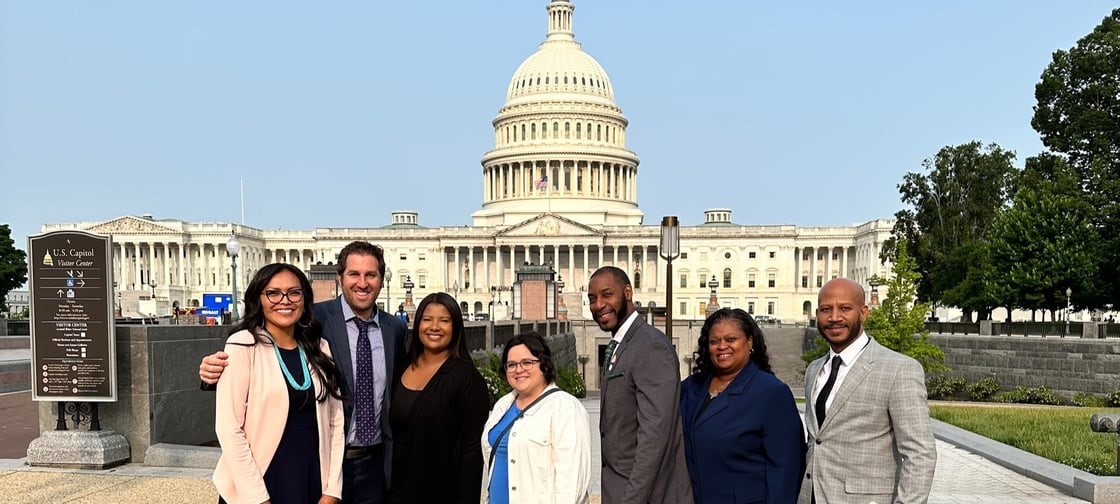WASHINGTON, D.C. Chairman John Kline (R-MN), the chairman of the House Education and Workforce Committee introduced a bill to reauthorize the Elementary and Secondary Education Act (ESEA) today. The bill includes the Charter Schools Program reauthorization language that was passed in the House last year.
Nina Rees, president and CEO of the National Alliance for Public Charter Schools, issued the following statement:
“We support Chairman Kline’s desire to reauthorize the Elementary and Secondary Education Act (ESEA) and applaud him for preserving annual testing in reading and math.
“We strongly support annual tests in reading and math from grades 3 through 8, and once in high school, as assessment data provides parents with information necessary to choose a high-quality school for their children. Without annual assessments, a schools performance is less clear and a students year-over-year achievement is more difficult to report. However, we are concerned that the bill does not do enough to hold schools accountable for the academic achievement of all groups of students.
“This bill includes many principles from the National Alliances reauthorization priorities, including many of our recommendations to expand and improve the Charter Schools Program that were included in H.R. 10, which was overwhelmingly passed by the House during the 113th Congress. We believe that in order for public charter schools to grow and innovate, the reauthorization of ESEA should also significantly boost federal funding for the creation of new charter schools and the replication and expansion of successful charter schools.
“ESEA reauthorization presents an opportunity to restate our nations commitment to transparency, measuring student achievement, and holding schools, districts and states accountable for student progress. It is also an opportunity to encourage innovation on a national scale and protect the autonomy of charter schools.”
The National Alliance released the following principles for ESEA reauthorization last month:1. Annual Assessments and Accountability for Student Achievement
Measure student achievement with annual reading and math assessments in grades 3-8. In order to ensure that parents throughout the country have access to clear, comprehensive data about school performance when choosing a school for their child, it is critical to have annual assessments in grades 3-8 (in addition to one assessment in high school).
Hold all schools accountable for improving student achievement of all students, as well as all groups of students. States should be required to hold schools accountable for helping all students (including members of key subgroups) meet high standards using status and growth measures of student achievement in, at a minimum, reading and math.
Close failing charter schools. An underlying premise of a public charter school is that if it doesnt produce results, it should close or be taken over by a new educational service provider.
Provide parents with clear indicators of school quality. States should provide parents with a rating system for schools that translates complex achievement data and other measures into an easily understandable framework.
Calculate adjusted cohort graduation rates. States should be required to continue to calculate and report four-year and extended-year adjusted cohort graduation rates that are comparable across all schools in a state.
2. Protect Autonomy and Encourage Innovation
Permit school-level funding flexibility. In order to use federal funds, particularly Title I, in a manner that enables the school to meet the needs of its students, schools should have flexibility in how they demonstrate compliance with the supplement not supplant requirement.
Expand eligibility for competitive grants. Networks of charter schools and charter management organizations should be able to apply for federal competitive grant programs that are open to local educational agencies.
Ensure that charters are free to design personnel systems and hire personnel that meet the unique needs of their school. A reauthorized ESEA should clarify that states are not required by federal statute (in either Title I or Title II) to include charters in state teacher evaluation systems, and should encourage states not to do so.
Encourage innovation through competitive grants to improve the effectiveness of teachers and principals. Allocating a portion of funds under Title II through competitive grants instead of by formula would foster innovation in the recruitment, selection, preparation, and retention of effective charter school teachers and principals serving high-need students. The competitive portion of Title II should include the Supporting Effective Educator Development (SEED) program (currently created through appropriations language), which makes grants to organizations that are providing innovative training to develop teachers and leaders for high-quality charter schools.
Reduce paperwork. Under current law, a state may consolidate the local application for all of the federal formula grant programs into one consolidated application for its LEAs. However, a single consolidated application can still be especially burdensome for single-school LEAs if it requires a school to do planning that is more appropriate for LEAs. The statute should clarify that states do not have to require an annual application. It should require states to exempt those schools from application requirements that do not makes sense for a single school LEA.
3. Improve and Expand the Charter Schools Grant Program
A reauthorized ESEA should include the language from Senators Kirk and Bennet’s bill (S. 2304), in order to modernize this program, protect charter school autonomy, and authorize grants for the replication and expansion of high-quality charter schools. S. 2304 reflects the National Alliances principles for reauthorizing the Charter Schools Program that were outlined in our comprehensive reauthorization proposal, Free to Succeed: Public Charter Schools and the Reauthorization of the Elementary and Secondary Education Act.
About Public Charter Schools
Public charter schools are independent, public, and tuition-free schools that are given the freedom to be more innovative while being held accountable for advancing student achievement. Since 2010, many independent research studies have found that students in charter schools do better in school than their traditional school peers. For example, one study by the Center for Research on Education Outcomes at Stanford University found that charter schools do a better job teaching low income students, minority students, and students who are still learning English than traditional schools. Separate studies by the Center on Reinventing Public Education and Mathematica Policy Research have found that charter school students are more likely to graduate from high school, go on to college, stay in college and have higher earnings in early adulthood.
About the National Alliance for Public Charter Schools
The National Alliance for Public Charter Schools is the leading national nonprofit organization committed to advancing the public charter school movement. Our mission is to lead public education to unprecedented levels of academic achievement by fostering a strong charter sector. For more information, please visit our website at www.publiccharters.org.







